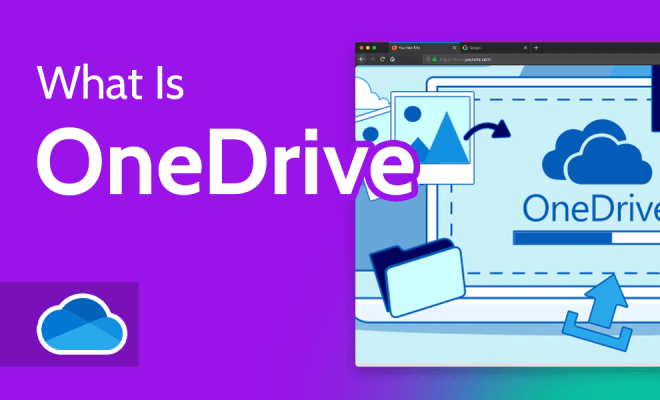What Is OneDrive? A Guide to Microsoft’s Cloud Storage Service

OneDrive is a cloud-based storage service that enables users to store, share, and sync files across devices. It is a product of Microsoft, and it is designed to provide users with a seamless and reliable way to store and access their files on the go. Whether you need to work on your documents from your desktop or your mobile device, OneDrive is the go-to solution for all your cloud storage needs.
One of the biggest benefits of OneDrive is its integration with Microsoft Office. With Office 365, you can save your files directly to OneDrive and access them later from any device. This means that you can work from your office computer and pick up where you left off on your laptop or tablet. You can also collaborate with others using Office Online, which allows multiple users to edit the same document simultaneously, regardless of their location.
Another significant selling point of OneDrive is its cross-device synchronization capabilities. Whether you have a Windows PC, a Mac, an Android phone, or an iPhone, you can access the same set of files from all of your devices. OneDrive automatically syncs your files to the cloud, so you don’t have to worry about manually transferring them from one device to another.
OneDrive also offers robust security features. All files are encrypted in transit and at rest, and you can set up multi-factor authentication for an extra layer of protection. You can also share files with others while maintaining control over who has access to them. With password-protected links and expiration dates, you can ensure that only authorized users can view or download your sensitive files.
OneDrive comes with a variety of plans, including a free plan with 5 GB of storage and paid plans with up to 6 TB of storage. The amount of storage you need will depend on the size and number of files you need to store. OneDrive also offers a personal vault feature, which provides an additional layer of protection for your most sensitive files, such as your passport or financial documents.






